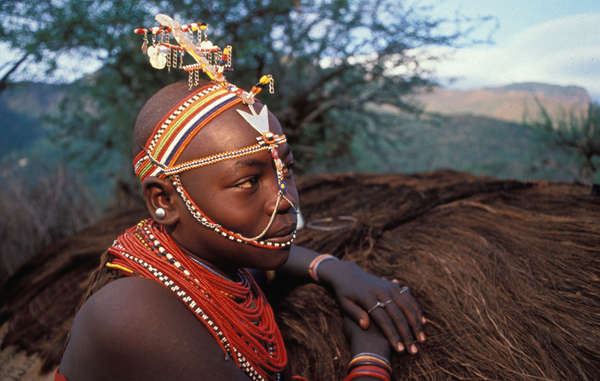 |
| Samburu woman |
As happened to their distant cousins, the Maasai, decades ago in Tanzania, the Samburu of Kenya are now being evicted from their ancestral lands (violently, illegally and without any compensation scheme) in order to make room for yet another wildlife park.
From Survival International (Dec 13):
Kenya’s Laikipia district has been part of the traditional territory of the Samburu tribe for centuries until two US-based charities – The Nature Conservancy (TNC) and the African Wildlife Foundation (AWF) – agreed to pay $2 million for their land, which was officially owned by former Kenyan President Daniel arap Moi.
Soon after, the Kenyan police began a series of brutal evictions of the tribe, burning their villages, killing and stealing their animals and assaulting men, women and children. Survival has recently received reports of an elder being shot ‘in cold blood’.
2,000 Samburu families now live in makeshift squats on the edge of the land and 1,000 others have been forced to relocate entirely.
Conditions are appalling, and resources scarce. A Channel 4 documentary caught on camera the extreme nature of these evictions in the Eland Downs.
(...)
Following waves of violence from the police, the Samburu began legal proceedings against AWF and ex-President Moi, to plead for their rights to the land. A subsequent court demand for no further harassment of the Samburu has been ignored. Survival has recently received reports that women and children have been sleeping in the bush, despite heavy rains, terrified of police violence.
··> full article.
The genocidal attitude of the Kenyan government may well backfire and the German travel industry, one of the largest in the World, has warned that the scandal may damage the reputation of Kenya and actually make them lose visitors.
 |
| Remains of a burnt Samburu village |
what hypocrisy in the name of conservation not be allowed to keep the traditional way of life of the samburu people, sad.
ReplyDeleteNatural reserves must consider the natives. Good working natural reserves integrate the people living in and around them and do not exclude them.
ReplyDeleteOther issues are the artificiality of post-colonial African states like Kenya, where some ethnic groups have practically no say on their own national (ethnic) affairs as result.